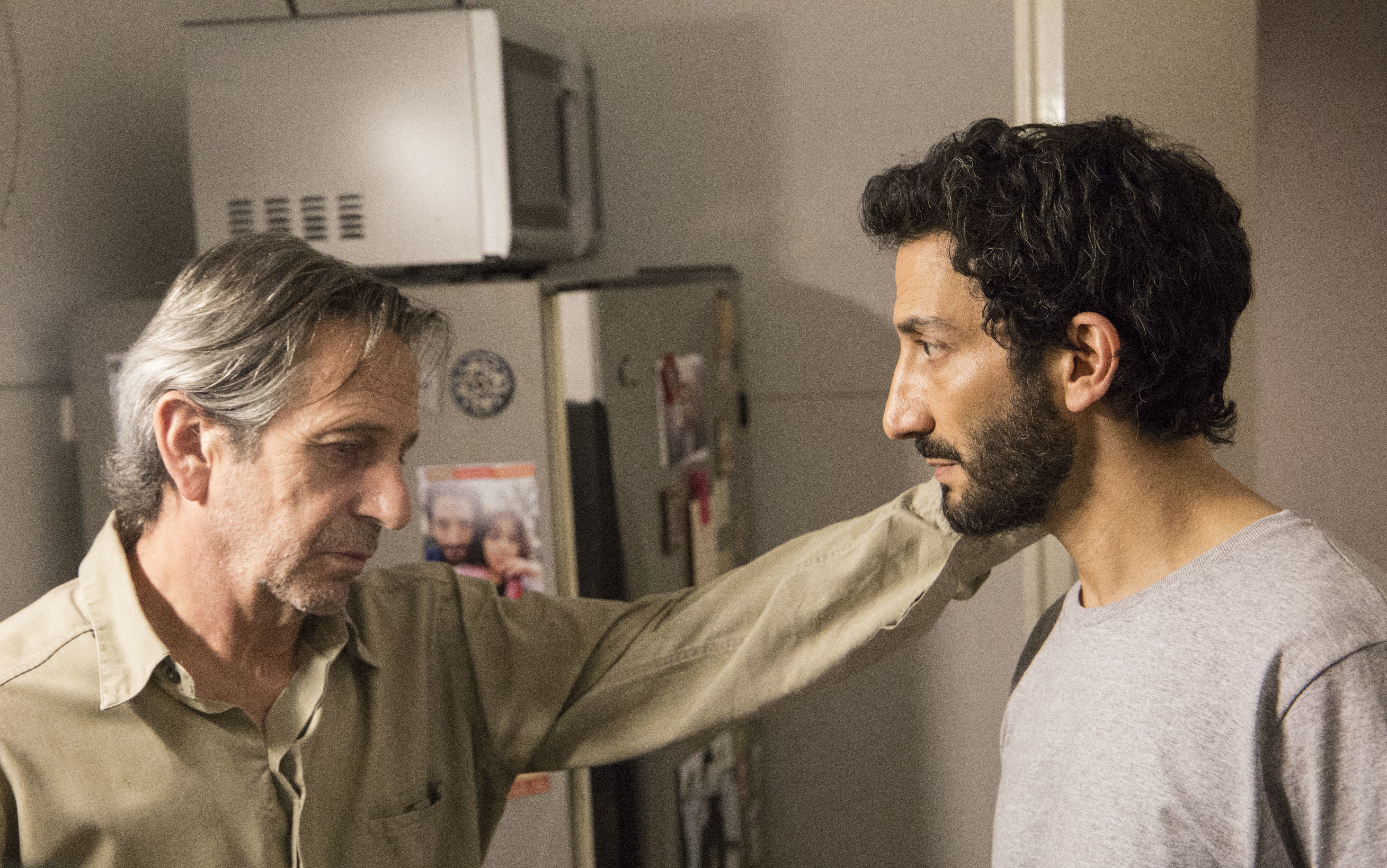
Diego Lerman's latest feat is a movie endorsing one of the most cliched cinematic tropes, that of influential-teacher-struggling-in-hostile-class-environment, however manages to avoid the pitfalls of mere mimesis and rise above the implausibility of films, mostly American, such as Dangerous Minds or the conspicuous naivete of Peter Weir's Dead Poets Society. The Argentinean director, known to the audiences for the 2010 movie The Invisible Eye and the 2017 chilling crime/thriller A Sort of Family, opts for realism in all aspects: setting descriptions, dialogue, general social context, characters. It helps that the movie was shot in Buenos Aires, the city in which Lerman was born and raised, thus being a more than familiar terrain for him to set it as the foundation of a rather disturbing story involving high school students, living in conditions of extreme poverty in the suburbs and inevitably getting mixed up in illegal activities such as drug trafficking. The Substitute offers an authentic and vivacious representation of the current social reality in Argentina with the creators, director and screenwriters, providing a rather detailed outline of the country's social ills through a narrative that unfolds in a slow pace, the emphasis remaining unwaveringly on the characters and their most human side. In his review of the film on Cineuropa.org, Cristobal Soage writes about the way that the main characters are presented: "the empathy and respect for all the human beings transcends the screen".
The definitive protagonist in this film is Lucio, the titular "substitute", a writer who has abandoned writing and struggles with his personal affairs, namely his divorce from his wife while being constantly at odds with his daughter, Sol (Renata Lerman), who is reaching puberty and frequently throws tantrums that upset her father. Lucio tries to free himself from the professional and familial shackles and when he takes on a new job as a substitute teacher of literature in an inner-city educational facility, he sees it as an opportunity to finally find some peace of mind. However, his first days at school leave him feeling numbed as it is evident that the pupils couldn't care any less about the value of literature as they live in a world in which might is right and people who live within it have no patience for useless things that cannot ameliorate their living condition. Furthermore, Lucio is the son of a local community hero, nicknamed "The Chilean" ("El Chileno"), played by an actor known for his involvement in art-house cinematic productions, Alfredo Castro. The weight of his father's name further oppresses Lucio who, frequently, feels it as a massive burden on his shoulders. Jennie Kermore makes a keen observation about that truth: "Male characters struggle to escape and yet simultaneously live up to the legacy of their fathers". Both actors are terrific in their respective roles and their interactions are truthlike while revealing information about both of them but not through exposition. Their dialogue parts are telling enough even when things are left unsaid and the sharp-eyed members of audience will learn a great deal about the two protagonists in way that is organic to the narrative.
There are more popular actors framing the cast with the Spanish diva Bárbara Lennie, who has previously collaborated with Lerman in the film A Sort of Family, now holding a secondary role, nevertheless impeccably acted by one of the most versatile actresses in the Spanish-speaking cinema today. However, the movie's strongest qualities pertain to the exceptional shooting with Wojciech Staron being the cinematographer and the man responsible for the many shots through glass and the use of Steadicam for the tracking shots, a revolutionary invention that marked the marked the history of world cinema as it gave the artists the chance to move through scenes without ever losing focus on following the story's agents, the characters, while putting the audience in the center of the on-screen action. The optics are transparent despite the murkiness of the surroundings. In terms of genre classification, the movie can fall under several distinct categories such as social realism drama, a study on middle-age disillusionment and the impasse faced by the modern man, and, as the story propels forward, it even transcends the borders of gangster crime drama, sprinkled with a final action sequence that concludes the film on a high note. There are some heavy philosophical reflections underpinning the story that will appeal to those who enjoy films that urge them to think outside of the box. In a way, The Substitute is reminiscent of the movies by the English director Ken Loach, the so-called "social issue cinema", in the sense that it provides an honest portrayal of the lives of the underprivileged men and women crawling the streets of big cities.
I suspect that this is not a title that will attract the attention of the American audience as the trope has been overused in the past in productions lacking any type of merit. On the other hand, fans of European cinema will undoubtedly trace the high production qualities Lerman's last motion picture and relish the story's main themes. Recommended by me!
About
El Suplente